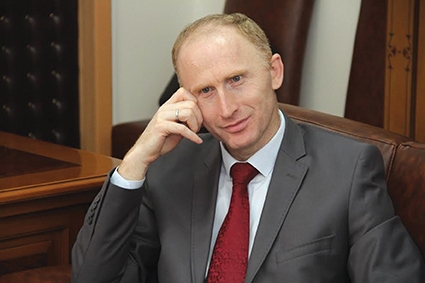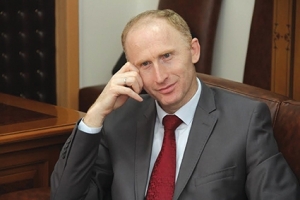“I think like a Georgian” – Ilyas Cilloglu on Identity, Education and Being Georgian
An exclusive interview with the Rector of International Black Sea University.
“I was born in Turkey, but my family roots are Georgian,” he says, and goes on to list his Georgian genealogy all the way back to the great grandfather who first moved from Batumi to what was then still the Ottoman Empire. “To this day, my mother, eighty five years old now, speaks better Georgian than Turkish. So it’s not strange that I came here to study and build my career. And she was happy and proud to hear of my decision,” muses Ilyas Ciloglu, or as you may find him under his Georgian alias- Chilashvili, Rector of the International Black Sea University (IBSU) as he sits down with us for a friendly chat. We ended up discussing many an issue, ranging from his recollections of 90s Georgia to the intricate nuances of today’s education system.
When speaking of the former, he can’t hide his fondness. “When I came to Georgia, there was no electricity, no gas; it was a very difficult time. But what we found there and what I hold dear to this day is that wonderful aura of togetherness and honesty, this wonderful camaraderie. I’m still getting phone calls from some of my course-mates who are “homesick” about Georgia,” he chuckles.
After wrapping up his Ph.D and quickly embarking on an academic pilgrimage to the USA, he came back to Georgia to settle down, “with my wife and three kids, I can say I’m happy here.”
As we are now and again interrupted by knocks on the door and calls on the phone, he takes a break to hail the IBSU’s non-bureaucracy approach a little. “Anybody can visit anybody here. Anytime. We’re open like that – students, professors, guests – they come and ask, and there is no barrier to reaching out. I think that’s very important.”
Going back to discussing the 1990s, he admits the changes have been massive. “Huge developments have been carried out – Georgia is really becoming a truly European country. To have witnessed Georgia’s change from, let’s put it fair and square, an incredibly corrupted country to one of the freer and most modern countries in this part of the world was incredible.”
Speaking of European values, he insists it’s the sector that he is employed in that makes the changes happen. “Education is key. It’s hugely important – to become a European and think like a European, you should learn what this stands for. And here in IBSU we have programs in English and Georgian, and without any false modesty, students here get a high standard education to an extent that makes us different, and I myself have checked most of the curriculums. The difference between how they are taught here and in Europe is miniscule. We are getting a lot of positive feedback from European universities where some of our students continue to study; they’re impressed with our students’ knowledge and competence. We also have exchange programs for professors; we invite them here and send some of ours abroad, to share experiences.”
Another aspect that is bona fide European and perhaps not as widely accepted as it should be is the element of self-governance in universities. Mr. Ciloglu, however, puts great stock in this and as a result, IBSU boasts abundant amounts of student clubs and communities. “To help them learn to work as a team, to find a consensus and drive forward,” he announces, sagely.
However, IBSU’s trademark was and remains instruction in the English language, which ranks among the very best in the region, including among universities of Turkey, becoming over the years a go-to place for those who want to study in English. Ciloglu himself thinks it’s a “low-risk, high rewards solution and it makes huge difference,” stressing the points, such as access to information and ability to better compete on the job market (a particular boon being that IBSU graduates aren’t required to show their TOEFL scores). The prospect of attracting foreign students is strategically important, too.
“Every foreign student that comes here to study and goes back home satisfied (and we do our best to make sure they are satisfied) is a voluntary ambassador of this country. They go home with huge love of Georgia, and in most cases, knowledge of the Georgian language, too. And many of them come back to invest here.”
But what catches the eye most in our conversation is his fervent approach to what it means to him to be a Georgian. “If you cut me, my blood is Georgian – I said it in one interview and they used it as a headline. I think in Georgian in my head. I’m not showing off, it’s a natural condition for me.” And as a father of three, he makes sure his children feel the same. “They are in an English language school and I transferred them to the Georgian language section. It’s important that you know Georgian if you want to live and work here, if you want to be a citizen of this country. Aside from very practical uses, I want my kids to grow up as Georgians, as well as Turkish. You’ve got to know your identity. And once again, this is not to show the world how hardcore I am; I think this is very normal, this is how things should be,” he announces solemnly.
We shake hands, each of us satisfied with how this turned out. With pleasantries exchanged, the Rector of the International Black Sea University goes back to his everyday busy schedule: running the country’s top rated English language academic facility requires gargantuan efforts from those responsible to keep it in the same high esteem it is held now.
Vazha Tavberidze












